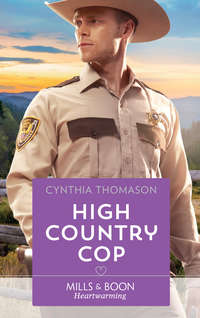
Полная версия
Christmas in Key West
Huey set his cart in his usual spot, back from the performers where mobile vendors like himself offered everything from KeyWest lemonade to handcrafted jewelry. He unlocked the panels of his wagon, exposing merchandise on both sides. Then he dropped the wooden boards, creating a level surface where more items could be displayed.
As her father sorted through chipped goods and threw them in a trash bin, Abby arranged the varied and colorful assortment of “stuff” that Huey offered for sale. Hanging from the roof on one side of the cart were dozens of fuzzy coconut heads, painted to resemble scowling, one-eyed pirates. Each was marked Made in China and priced from three dollars to five, depending on the detailing. Shell wind chimes hung from the other side, their hollow-sounding clackety-clack drawing attention in the breeze.
The rest of Huey’s inventory was equally garish and also entirely foreign-made. He set up brightly painted ceramic blowfish, ocean-theme salt and pepper shakers, stuffed flamingos, palm tree mugs and conch-shell bells. Six-inch ceramic figures of chubby beach goers carrying umbrellas and sand buckets added to the eclectic inventory.
Nothing on Huey’s cart was priced higher than five dollars. Abby’s hopes of improving her father’s bottom line plummeted. But when families with children actually stopped and examined his goods, she became encouraged. Perhaps a market for Huey’s goodies existed among young parents, who could only afford inexpensive souvenirs.
Unfortunately, her hopes were dashed again when Huey took a rickety folding chair and a pair of binoculars from the back of the cart. He opened the chair, plopped himself in it and held the binoculars up to his face.
“What do you need those for?” Abby asked.
“I use them every night,” he said. “I keep thinking something interesting might happen. Hasn’t yet, but you never know.” He hung the binoculars around his neck and popped up a hat shaped like an umbrella, which he jammed onto his forehead, virtually hiding his eyes. Taking a deep, relaxing breath, he snapped open a newspaper. So much for watching the world. And so much for salesmanship.
Abby walked around the cart, stared down at her father and attempted to be diplomatic. “Ah, Poppy, don’t you think you’d sell more if you showed more enthusiasm?”
He glanced up at her. “They’ll ask if they want something.”
All around them, merchants were hawking their goods, performers were drawing crowds and food vendors were offering free samples. Mallory Square at sunset was an entrepreneur’s playground. Yet Huey sat, uninspired and totally uninvolved. Abby frowned. No wonder…
There were more ways to finish that thought than she cared to contemplate.
She tried to fill in the obvious gap in her father’s merchandising technique. When browsers approached the cart, she offered to show them individual items. She even sold one little girl a flamingo—a sale that wouldn’t have happened had Abby not placed the furry creature in the child’s hands. Meanwhile, Huey read the newspaper.
A tense moment occurred when a boy no older than four came up to the cart and tugged on Huey’s shirtsleeve. With bright, inquisitive eyes, he pointed to Huey’s white beard and asked, “Are you Santa Claus?”
Anticipating a brusque reply, Abby prepared to soothe the child’s hurt feelings. Her dad, however, merely dropped the paper to his lap, leaned forward and said, “You think every man with a beard is Santa Claus?”
The little boy smiled and said, “Yes. But why does Santa have a sore eye?”
Huey grunted. “Good question, kid. Reese, the Red-nosed Reindeer, punched me.”
The boy giggled. “I thought his name was Rudolph.”
Huey gently jabbed the boy in the center of the cartoon on his T-shirt. “Haven’t you ever heard of anyone changing his name to protect the guilty?”
“No. What does that mean?”
“Don’t worry about it.” Huey grabbed a coconut head from a hook and handed it to the boy. “Here. Merry Christmas.”
His mother nudged him forward a couple of inches. “What do you say, Trevor?”
“Thanks, Santa.” Mother and son headed off toward a performer putting his trained cats through their paces.
Abby stared at Huey for several seconds before saying, “You know something, Poppy?”
He picked up the newspaper again. “Don’t go getting all sentimental on me,” he warned.
She kissed his cheek. “Okay, but your soft spot is showing.”
He placed his hand where her lips had been. “Is not.”
She smiled and stuck another head on the empty hook. And then she saw a patrol car slowly pull up to the edge of the harbor. Enough sunlight was left for her to determine that Reese Burkett sat behind the wheel. And he wasn’t alone. Someone was in the passenger seat.
A shiver of anticipation, or dread, or maybe even disappointment, worked its way down her spine, and Abby stepped around the side of the cart to be out of sight. But she knew Reese had seen her. She sensed him watching Huey and her, felt his attention by an involuntary curling of her toes in her sandals.
“What are you hiding back there for?” her dad asked.
“I’m not hiding.” She pointed. “Isn’t that Reese?”
Huey turned in the chair just enough to glance over his shoulder. “Yep. Probably hassling citizens for fun. He ordinarily doesn’t work at night, and never at the sunset ritual.”
Abby feigned an interest in fuzzy stuffed dolphins and peeked at the car. “Who’s with him? It looks like someone with long blond hair.”
“You need glasses, Abigail,” Huey said. “Long blond ears is more like it.”
Abby couldn’t resist; she came around the cart for a closer look. Reese was out of the car and coming toward them. A big yellow dog on a short leash trotted obediently beside him.
The twosome stopped at the cart and Reese smiled at Abby. “I thought you might be here with Huey,” he said.
Huey made a show of rustling the newspaper. “You’re an investigative genius, Burkett,” he said. “No wonder you’re captain of this illustrious police department.”
Reese scowled down at him. “I see you’re feeling better.”
“You want me to really feel better?”
Reese seemed to think about it before saying, “Sure.”
“Tear up your copies of those worthless citations. Then I’ll know you mean it.”
When Abby nudged the back of his chair, Huey mumbled something she was glad she couldn’t hear.
Reese turned his attention to her. “How’s business?”
“Fine. Great,” she lied. “You were looking for us?”
Reese patted the animal’s head, and the dog gazed up at him with huge, adoring eyes. “Just doing rounds.”
She couldn’t help smiling. The dog was overgrown and clumsy-looking, a definite hug magnet. “Is he yours?”
“Yep.”
“What kind is he?”
“A Lab mostly. Name’s Rooster.”
“Rooster?”
“Yeah. I found him outside one of the restaurants in town. He was chasing after some of the chickens that run over the island. All that squawking and barking was upsetting the business owners.”
“That’s what I’ve always said about you,”Huey muttered.
Abby shook her head. “Seems like a nice dog.”
“He is.”
“Well, see you,” she said, with a wave of her hand. Only Reese didn’t leave.
“Tomorrow’s Saturday,” he stated. “I’m off on weekends. Would it be okay if I stopped by your place in the morning?”
“Why would you do that?”
“I’d like to talk to you about something.”
“What’s wrong with right now?”
He glanced down at Huey, who was arguing with a few customers over the price of a plastic beach ball. The pregnant woman and her two kids seemed to be winning.
“We should keep this between the two of us.”
Abby shrugged with an indifference she didn’t feel. What could Reese possibly have to say that concerned the two of them? Masking her curiosity behind a flip remark, she said, “I guess this means you’re not canceling Poppy’s fines.”
Reese smiled again, this time an indulgent pull of his lips. “I’ll see you tomorrow.”
“Make it early,” she said. “I’ve got errands to run.”
He tugged on the leash. “No problem. I’m an early riser.”
The yellow dog padded alongside him back to the patrol car, jumped in and took his seat as the passenger. Abby watched them leave the parking lot. She was a long way from admitting to herself that she was relieved that Reese’s “date” had long blond ears.
Chapter Five
AT NINE O’CLOCK SATURDAY morning, a black Ford pickup turned onto Southard and stopped in front of the house. Abby increased her efforts to sand the decorative wrought iron fence at the sidewalk. She was aware when Reese got out of the truck, but she decided not to acknowledge him right away. Big deal. He’d shown up. He obviously had an ulterior motive.
He strode up to her. “Hey.”
She glanced up and continued working. “Hey, yourself.”
He held out a tall mug and a plastic pack of accessories. “I brought coffee.”
Noticing the trademark M, she took the mug and stirred in two sugars. “Martha’s. Thanks.”
He leaned against the fence. In tan cargo shorts and a green-and-orange University of Miami T-shirt, he was decidedly uncop-like and more like the young college grad who’d brought his reckless behavior and invincible attitude back to the island. The same young man who’d suddenly joined the navy and left Key West without telling her he was going. Not that he’d felt he owed her an explanation back then. He’d made that clear by not calling her after she’d met him on the beach for the encounter that changed her life. After two weeks, she’d given up hoping he would.
“You planning to paint that?” he asked, gesturing at the fence.
“You think it needs it?”
He smiled. “It has for the seven years I’ve been back.”
“Actually, I thought I could talk Poppy into painting.” She wrapped sandpaper around a pole and scraped. “I told him I’d rough it up first.”
Reese stared at the front door of the house. “So I should expect him to come out any minute and start yelling at me?”
“Nope. He went for doughnuts.” She sipped her coffee. “If you have something to say, you’d better get to it.”
“Can you stop working on that fence for a minute?”
She stood up, dusted her hands on her shorts. “I’m all yours. Is this going to take longer than the five minutes I gave you at the hospital?”
He crossed his arms. “Great. I’m on the clock again.”
She managed a small smile. “Let’s sit on the stairs.”
They settled side by side on the top step. After a few moments of silence, Reese said, “Abby, I discovered something yesterday—”
She held up her hand, interrupting him, and looked toward the corner. “What’s that noise?”
He nodded, indicating he was familiar with the chug of an engine and the now-amplified chirpy voice that filtered through a speaker. “It’s the Conch Tour Train,” he said. “You remember that.”
The Conch Tour Train, famous as the way for visitors to see the island and hear its history, rolled onto Southard. The engine, a cross between a kids’ amusement ride and an old steam locomotive, pulled five passenger cars down the narrow street. A Christmas wreath blinked from the decorative smokestack. Each open-air tram, trimmed with colorful awnings, was packed with tourists pointing and waving and ignoring the driver’s warning to keep their hands safely inside the vehicle.
“A cruise ship docked at Mallory Square this morning,” Reese explained. “The tour trains will be steady all day until the passengers reboard.”
“What are they doing on this street? We’re not part of the tour, are we?”
Reese shrugged. “I really don’t know. The guides pick the sites. They drive around to all the spots they think are important because of local color or historical significance.” He gazed up at the house. “This was the home of Armand Vernay. Your ancestor had quite a reputation during the island’s shipwrecking days.”
Not this again. While she’d lived in Key West, Abby had struggled to live down the horror stories about her ancestor’s misdeeds. And when she wasn’t defending the family name for her great-great-great-grandfather, she was defending Huey’s reputation as the island’s ambitionless eccentric. She cringed when the tour guide spoke.
“Ladies and gentlemen, I urge your attention to your left, to the faded Classic Revival residence nearly hidden behind that pair of old banyan trees. This is Vernay House, built in 1857 by the infamous Armand Vernay. The house, with its interesting and colorful history, has remained in the hands of his descendants since that time.”
Enough, Abby thought, mentally waving the guide on. It wasn’t to be.
“Armand Vernay was a notorious salvager who braved Atlantic storms to aid vessels that became grounded on the treacherous reefs that border our island. In the 1850s, when Key West was the richest city per capita in the United States, salvaging was our most profitable industry. The rules were simple. The first wrecker to reach a foundering ship had rights to its cargo, which could be anything from gold, to porcelain, to the finest European leather goods.”
Abby’s stomach clenched. She stood. Here we go. More talk about Armand’s wicked ways.
“I didn’t know your place was on the tour, Abby,” Reese said. “But I’m not surprised. The legend of Vernay House is a good story.”
Конец ознакомительного фрагмента.
Текст предоставлен ООО «ЛитРес».
Прочитайте эту книгу целиком, купив полную легальную версию на ЛитРес.
Безопасно оплатить книгу можно банковской картой Visa, MasterCard, Maestro, со счета мобильного телефона, с платежного терминала, в салоне МТС или Связной, через PayPal, WebMoney, Яндекс.Деньги, QIWI Кошелек, бонусными картами или другим удобным Вам способом.








